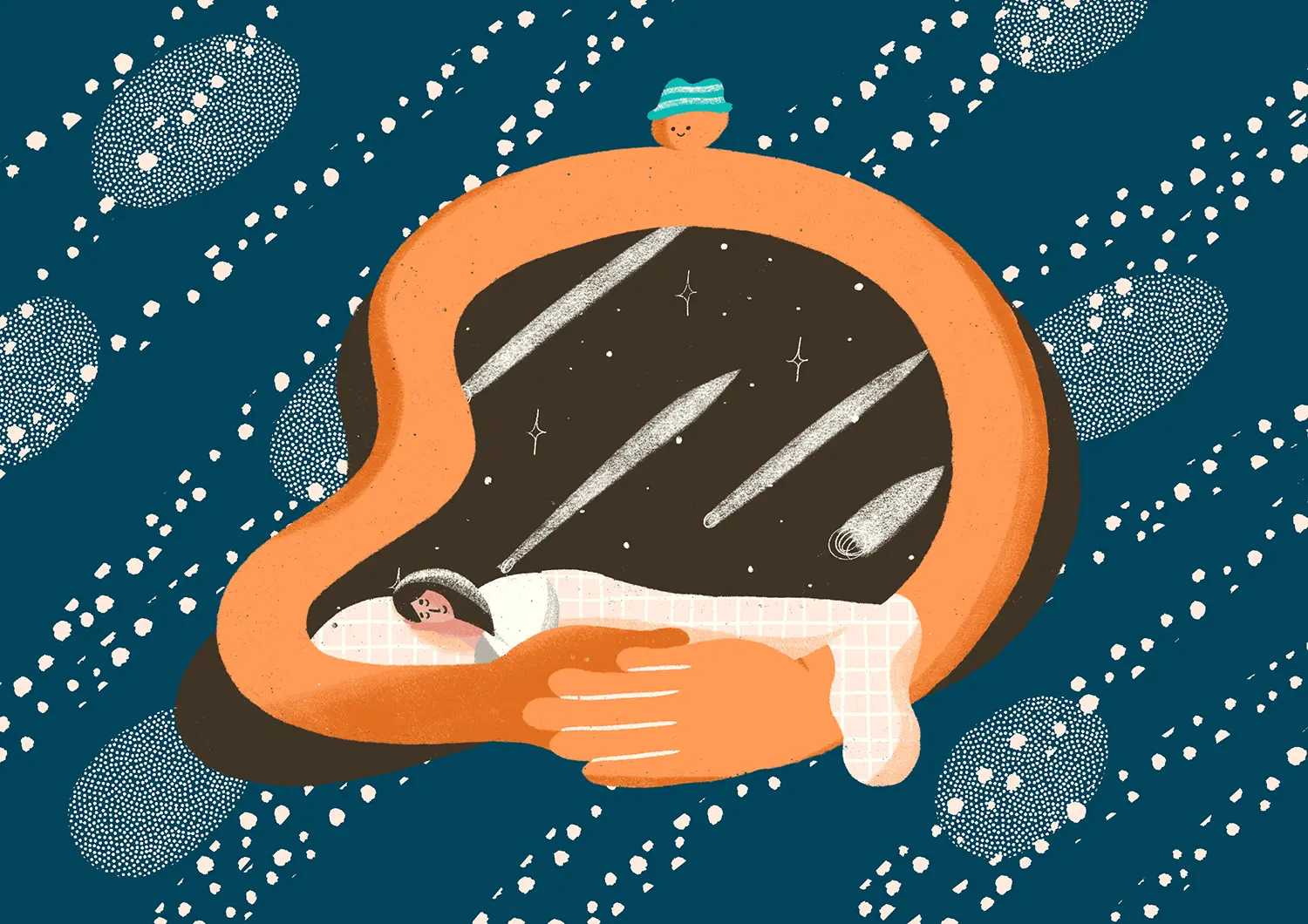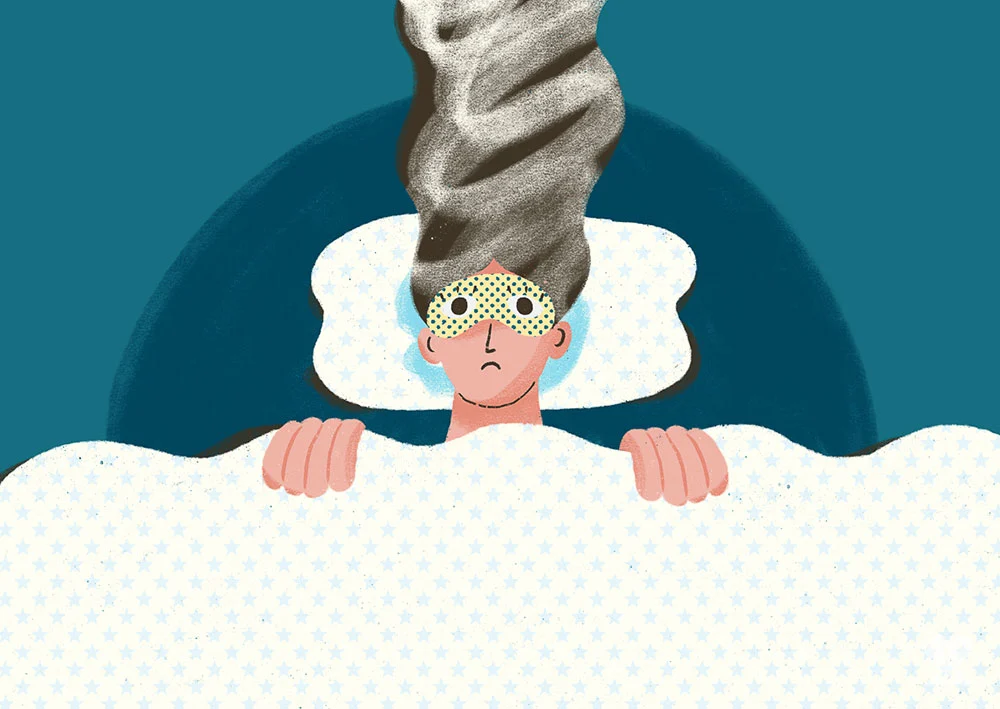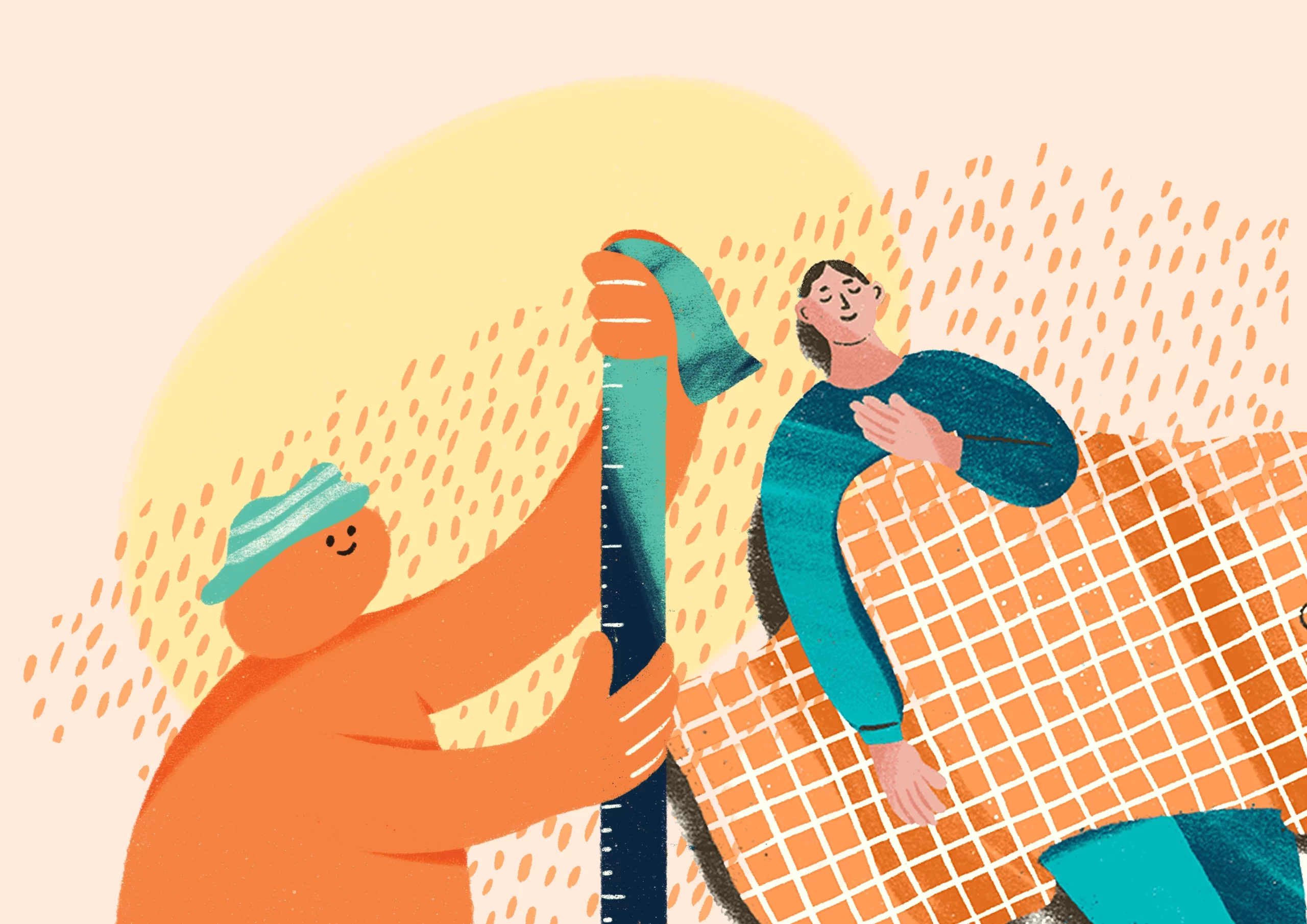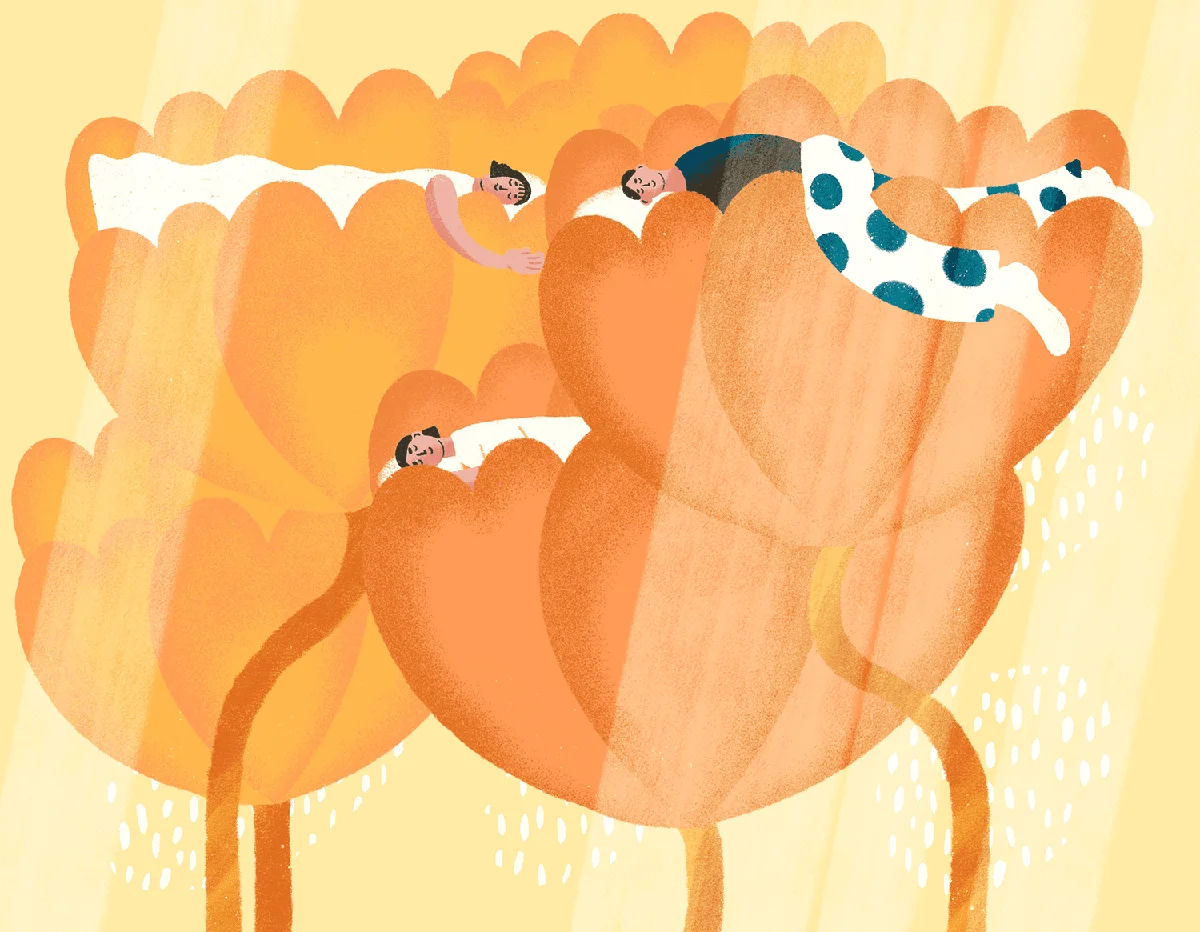
Highlights:
- "Cognitive Behavioral Therapy for Insomnia" (CBT-I) guides people experiencing insomnia to identify and address the thoughts and behaviors that contribute to insomnia
- Major methods include sleep hygiene education, sleep schedule adjustment, stimulus control, relaxation exercises, sleep restriction, and cognitive restructuring
- Research shows that online cognitive behavioral therapy for insomnia could improve participants' sleep efficiency, reduce the severity of insomnia and depressive symptom scores
- Effectiveness of online cognitive behavioral therapy for insomnia is similar to that of in-person therapy
Sleep plays a vital role in maintaining good health and well-being. If we want to be energized the next day, most of us would need adequate sleep. Given we all appreciate the importance of sleep, it is natural for us to be stressed when we do not sleep well.
Sleepless nights can be a source of distress for those who experience insomnia. In addition to affecting daily living such as work and social life, insomnia can also affect our memory and mood or bring about anxiety and depression.
According to the the Diagnostic and Statistical Manual of Mental Disorders, Fifth Edition, Text Revision (DSM-5-TR), insomnia is characterized by:
- Challenges in falling asleep: inability to fall asleep beyond 30 minutes
- Inability to maintain sleep: frequent awakening during sleep
- Early-morning awakening: waking up earlier than the expected time and unable to return to sleep
- Perceived poor sleep quality: feeling tired after waking up, as if haven’t slept at all
When the above conditions occur three times or more per week and persist for three months or more, causing distress or disruption in daily functioning; and given that the situation remains unchanged even with ample opportunity to fall asleep without being affected by other sleep disorders, medications, or mental health conditions, you may be experiencing insomnia.
To get a better night’s sleep, some may choose to take sleeping pills, some may try relaxation exercises, or drinking milk, soaking in a hot bath before bed, etc.. In fact, insomnia is often caused by habitual beliefs and behaviors that are not conducive to sleep. Cognitive Behavioral Therapy (CBT) can facilitate people who are experiencing insomnia to change their sleep-related habitualized thoughts and behaviors, fundamentally improving their sleep and quality of life.

How does CBT-I work?
Cognitive Behavioral Therapy for Insomnia (CBT-I) provides a step-by-step approach to resolving sleep problems by identifying and addressing the thoughts and behaviors that perpetuate insomnia. Insomnia-inducing thoughts may be preconceived ideas about sleep, such as worrying about lack of sleep, ruminating about the consequences of insomnia, or believing that deep sleep is the only way to an effective rest. Insomnia-inducing behaviors may be staying in an uncomfortable bedroom, doing things that wake our brain before bedtime, taking naps during the day, consuming too much caffeine etc.
The six major components of CBT-I include:
- sleep hygiene
- sleep-wake scheduling
- stimulus control
- relaxation therapy
- sleep restriction
- cognitive therapy
In general, users' sleep status and pattern will be first assessed. A "sleep diary" will be utilized to record each night's sleep, in order to develop a personalized sleep schedule. At the same time, unfavorable thoughts and behaviors contributing to insomnia will be identified and replaced by healthy sleep habits.
CBT-I Examples
Stimulus control
Many of our daily habits, behaviors, and feelings are associated with specific objects, environments, and people. For example-
When I look at delicious food (stimulus), I get hungry (response)
When I stay in a tranquil room (stimulus), I feel calm (response)
For people with insomnia, staying in their bedrooms or seeing their beds may trigger memories of insomnia. They may ponder "Can I sleep tonight?’’ and automatically link "going to bed" to "failing to fall asleep and feeling unwell". In the long run, this may reinforce their distress of sleep.
One of the techniques of stimulus control is to create an environment that activates the "sleep mode". In particular, you may need to set a clear boundary between work and sleep. Try to leave your bedroom or bed during the day, or try "changing the scene" before bed. You may decorate your bedroom, instill a sense of relaxation by putting specific objects such as toys and blankets on your bed, or use aroma to create a soothing environment that fosters sleepiness; let your brain be aware of the change of scene and activate the "sleep mode".
Sleep restriction
Sleep restriction is another core component of CBT-I.
Many people who experience insomnia may perceive that they are awake during the light sleep stage and may underestimate the number of hours they are asleep. They may prolong their time in bed to make up for their sleep. The longer the person is awaken in bed, the more the person may experience fear and anxiety about insomnia, forming a vicious cycle.
While it may sound counter-intuitive at first, by limiting the time staying awake in bed and only going to bed when feeling sleepy, it is easier to fall asleep. When one gradually adapts to the new sleep pattern and improves sleep quality, the vicious cycle of insomnia may slowly break.
You can calculate sleep efficiency by recording the actual hours of sleep and lying on bed each day in your sleep diary.
Sleep efficiency =
total time in sleep (sleep time) / total time in bed (bedtime) x 100%
Under the premise of having at least 5.5 hours of bedtime, the bedtime can be increased by 15 minutes if the sleep efficiency reaches 85% or above. If the sleep efficiency is less than 80%, the bed time can be reduced by 15 minutes; if it is between 80% and 85%, the bed time remains unchanged. This method is based on a 7-day cycle, in which the bedtime needs to be adjusted every 7 days, according to the average sleep efficiency of the previous cycle. By gradually increasing sleep efficiency, people experiencing insomnia can get deeper rest during their sleep and break the perceived connection between insomnia and their bed.

Cognitive Behavioral Training for Insomnia in Jockey Club TourHeart+
Course effectiveness
Online cognitive behavioral therapy for insomnia is a flexible, convenient, and affordable form of psychotherapy that can be delivered autonomously over an online platform, anytime, anywhere, with the support of digital tools.
Research shows that online cognitive behavioral therapy for insomnia can improve sleep efficiency, insomnia severity, and depressive symptom score, and the effects can be maintained for 4 to 48 weeks. Compared to in-person therapy, online therapy was statistically similar in improving sleep efficiency, total sleep time, and insomnia severity.
In addition, research shows that online cognitive behavioral therapy could improve different sleep quality indicators including:
- sleep onset latency,
- wake after sleep onset,
- total sleep time,
- sleep efficiency,
- number of awakenings
Our platform offers an evidence-based, free, 6-session online cognitive behavioral training for insomnia (to be completed in 6-8 weeks). Led by clinical psychologists, the course explains how to relieve insomnia through videos, texts, exercises, questionnaires, and story sharing. You will be equipped with the knowledge of sleep science and learn to break the myths about insomnia. You will also learn about different sleep management techniques, how to develop healthy sleeping habits, and take action to improve insomnia and alleviate the distress of insomnia. The course customizes exercise reminders to facilitate you in reviewing your records and revisiting exercises.
This program can effectively improve insomnia severity, sleep efficiency, sleep quality, and reduce awakenings during the night. During the online learning process, you will be able to use e-tools such as sleep diary and assessment to help you understand your own sleep situation and create a personalized sleep plan.
For whom is CBT-I suitable?
Whether you have sleep difficulties (e.g., difficulty falling asleep or staying asleep, early awakening) that affect your performance during the day, or wish to improve your sleep quality, or are interested in learning more about sleep health, this course is suitable for you.
Through the six components of cognitive behavioral training for insomnia, the course will work with you to break the insomnia cycle one-by-one:
- Sleep diary
- Sleep hygiene
- Stimulus control
- Sleep restriction
- Cognitive restructuring
- Relaxation exercises
The course features hands-on exercises and tools, including:
- Diaphragmatic breathing
- Relaxation exercises for self regulation
- Progressive muscle relaxation
- 4-7-8 Breathing
- Body scan
- Worry diary
- Thinking traps test and Thought diary
- Sleep diary
Benefits of CBT-I
- Suitable for those who prefer to solve their sleep difficulties on their own, without medications
- For people experiencing short-term insomnia, it can be an alternative to sleeping pills or to prevent recurrence of insomnia
- Long-term users of sleeping pills can try learning CBT-I to supplement sleeping pills, and to reduce or stop taking the pills in the long run
- Applicable to most individuals, including vulnerable groups such as older, pregnant women, and children, without any known side effects
- Addressing the root causes of insomnia, such as sleep habits and mindsets, which may help to resolve solving insomnia in the long run
Limitations of CBT-I
- This intervention requires active participation of users to achieve optimal results
- Individuals with specific medical conditions should check with their physician or related professionals prior to commencing CBT-I, such as untreated or unstable acid reflux disease, cardiovascular disease, bipolar disorder, alcohol or drug dependent sleep apnea, restless legs syndrome, circadian rhythm sleep disorder, etc.
It is possible that we can get through the sleepless nights with our own power - may you say goodbye to the restless nights and enjoy your restful, uninterrupted slumbers.

References:
Li, L., Wu, C., Gan, Y., Qu, X., & Lu, Z. (2016). Insomnia and the risk of depression: a meta-analysis of prospective cohort studies. BMC psychiatry, 16(1), 375. https://doi.org/10.1186/s12888-016-1075-3
Seyffert M, Lagisetty P, Landgraf J, Chopra V, Pfeiffer PN, Conte ML, et al. (2016) Internet-Delivered Cognitive Behavioral Therapy to Treat Insomnia: A Systematic Review and Meta-Analysis. PLoS ONE 11(2): e0149139. https://doi.org/10.1371/journal.pone.0149139
Soh, H. L., Ho, R. C., Ho, C. S., & Tam, W. W. (2020). Efficacy of digital cognitive behavioural therapy for insomnia: a meta-analysis of randomised controlled trials. Sleep medicine, 75, 315–325. https://doi.org/10.1016/j.sleep.2020.08.020


